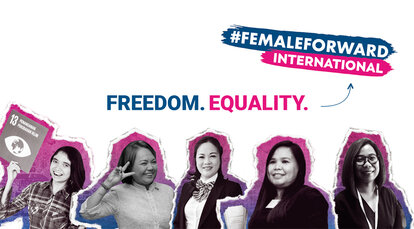Tsai Ing-wen: Do it bravely

Tsai-Ing-Wen has made history as the first female president of Taiwan, winning a resounding victory in 2016. She leads one of Asia’s freest democracies and has firmly supported pro-democracy protests that stormed Hong Kong for months in 2019, declaring that Taiwan stood with the protesters and even welcoming activists seeking asylum. On her watch, Taiwan became the first country in Asia to legalize same-sex marriage in 2019.
She won a second term in January 2020 to continue the Democratic Progressive Party’s (DPP) agenda to lessen dependence on China by expanding Taiwan’s economic cooperation with Southeast Asian and South Asian countries, Australia and New Zealand in what is called the New Southbound Policy. The DPP leans towards independence from China in contrast to Kuomintang, a conservative party, which is pro-China.
As a result, China, which claims Taiwan as part of its country, has put pressure on Tsai and the DPP, ostracizing them. Still, Tsai did an unusual thing: She traveled to America, with which it has no formal diplomatic relations as the U.S. and majority of countries recognize the “one-China policy” demanded by Beijing. Tsai met members of the U.S. Congress and spoke at Columbia University where she held up Taiwan as a beacon of democracy, initially thought of as an impossible feat since it fell under China’s giant communist shadow.
Our path to democratization was paved with the blood, sweat, and tears of those who came before us. Now the task falls to us to carry on their mission, and continue to bear the torch that lights the way for countries still on the path to democracy.

Before this trip, President Trump called Tsai to congratulate her on her victory, the first direct conversation between U.S. and Taiwanese presidents since 1979 when both countries restored relations.
Born on 31 August 1956 to a Hakka (aboriginal) father and Taiwanese mother, Tsai is the youngest of nine children. She finished law at the National Taiwan University, regarded as the most prestigious university in her country, after which she took up master of laws in Cornell University in the U.S., passed the New York Bar and went on to finish her doctorate in law from the London School of Economics and Political Science.
When she returned to Taipei in the early 1980s, she taught law for 16 years in universities in the capital city. She then joined the government as key trade negotiator and helped paved the way for Taiwan’s entry into the World Trade Organization in 2002. Tsai’s strengths in negotiations and diplomacy shone during these years.
She joined the DPP in 2004 and was voted party leader in 2014, a position she held for many years. Again, she broke record as the first woman president of DPP.
She may be “mousy,” as described by The Economist, far from the fiery Taiwanese politicians she deals with, yet Tsai has courageously stood against authoritarianism. She has dispelled the idea that democracy and economic growth are incompatible.
In this age of disinformation, Taiwan has also made it a priority policy to fight “fake news” by strengthening its legal framework to identify and prevent its spread.
As a defender of Taiwan’s sovereignty, Tsai has shown that leaders can quietly but vigorously champion democracy, make it more robust, and let it stand as an example to the rest of the world.
Excerpt from the book Compelled by Duty, Conscripted by Destiny: Portraits of 16 Asian Women at the Frontline of Democratic Struggle, authored by John Joseph S. Coronel, published by the Council of Asian Liberals and Democrats

Read more inspiring stories of women who shattered the glass ceiling and overcame the glass cliff here.